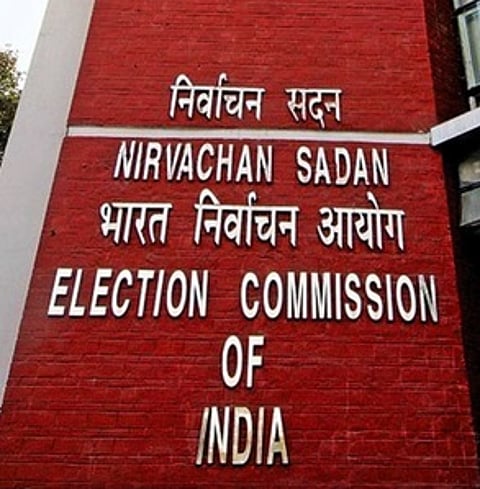

Ahead of the 2024 Lok Sabha elections, a group of civil society organisations has written to the Election Commission of India highlighting concerns over technology’s impact on the electoral process, suggesting various monitoring mechanisms to curb the misuse of social media platforms, Artificial Intelligence (AI) and other technologies by political parties.
The organisations have asked ECI to formulate a strong Model Code of Conduct for social media, ask political parties to disclose their digital activity and related spending, monitor spending on online political ads and whom they targeted at, and prevent surveillance of voters at polling booths.
They also said that paid ad campaigns with boosted visibility on social media are “a worrying trend for India’s democracy.” They pointed out that tech giants such as Meta, which have been criticised for not being accountable in India, function differently in other countries such as the United States where they respond faster and implement better preventive measures.
The signatories of the letter include organisations advocating for citizens’ digital rights and transparency in elections, as well as farmers’ and labour rights groups, such as Internet Freedom Foundation, Software Freedom Law Center, Article 21 Trust, Association for Democratic Reforms, Campaign Against Hate Speech, Common Cause India, LibTech India, Maadhyam, Mazdoor Kisan Shakti Sangathan, National Alliance of People's Movements, and Rajasthan Asangathit Mazdoor Union.
The letter raised four main concerns about the effect of technology on the integrity of the 2024 Lok Sabha polls – spending on targeted online ad campaigns by political parties, as well as surrogate ads that can influence voters’ perception; use of emerging technologies such as deepfakes; the inadequacy of the Voluntary Code of Ethics observed by social media platforms during elections; and voter surveillance at polling booths using technologies such as facial recognition.
An analysis of social media political ads by the media organisation The Reporters’ Collective and research organisation ad.watch, from a period that included the 2019 general election, revealed that Facebook’s advertising platform had given an unfair advantage to the ruling Bharatiya Janata Party (BJP) over its opponents. The study also found that a Facebook page linked to Mukesh Ambani’s Reliance Industries escaped action despite putting out misleading surrogate ads resembling news reports that carried misinformation or distorted information taken out of context, to portray BJP leaders in a positive light and to undermine opposition leaders.
Pointing out the limitations of the Voluntary Code of Ethics that applies to social media platforms during elections, the letter noted that the code was drafted “without any transparency, public inputs, or civil society engagement.” It said that the same social media companies comply with stricter regulations in the United States and European Union. Citizens are not informed about whether these companies are following the code, and there are no avenues for them to report any violations, the letter said. The organisations suggested that the ECI should switch to a better Model Code of Conduct for social media platforms, and inform the public of any violations.
The letter also suggested that the ECI must make it mandatory for all parties and candidates to disclose to the public their activity on major online platforms, the third parties hired to handle their social media accounts and campaigns, and their spending towards these campaigns. “The ECI must put in place curbs on data brokers which collect large volumes of data and sell it to political parties ahead of the elections,” it said.
It also asked the ECI to closely monitor the online spending of political parties and candidates for election campaigns. “The spending declared by political parties must be corroborated by digital platforms,” it said. It also asked ECI to come up with a clear definition for “surrogate advertising” – ads that try to influence voter perceptions without openly being linked to any party or candidate – and establish strict limitations for ad spending on digital platforms.